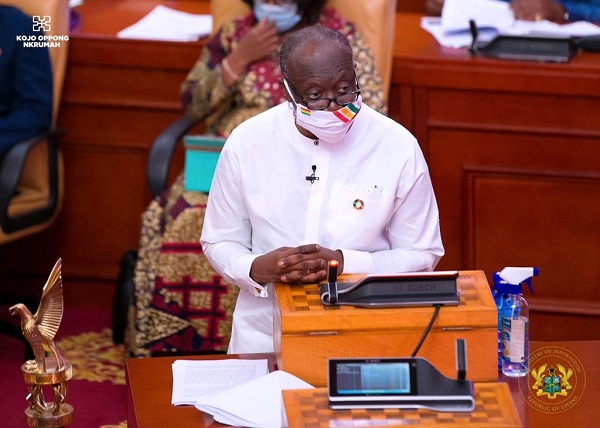Ghana’s Finance Minister, Ken Ofori-Atta, says the decision to seek assistance from the International Monetary Fund (IMF) to solve the West African nation’s economic challenges is a “short-term measure for balance payment support.”
In the longer term, however, Mr Ofori-Atta told members of Ghana’s Parliament during the 2022 mid-year budget review that “what we really need is a major structural shift in our economy.”
The structure of Ghana’s economy is still largely primary despite the numerous attempts to structurally transform it through various industrialisation programmes. The country continues to be heavily reliant on primary commodities, extractive industry and are price takers on the market.
“Mr. Speaker, that is why the President’s vision of a Ghana Beyond Aid is critical. It is to reduce our vulnerability to global shocks. Over the last few years the implementation of our flagships including the 1D1F, the Planting for Food and Jobs, the Road and Railway development programme and our recovery programme the GhanaCARES “Obaatan Pa”, will add value to our products,” he stated.
To increase productivity in both the public and private sector of the economy to drive our transformation agenda, therefore, the finance minister said government will implement programmes such as the YouStart as well as the Training and Retraining programme to enhance the skills of Ghanaians especially the youth to promote a robust digital-technology driven in architecture for unique identification to aid revenue mobilisation, expenditure management and enhance security; improve connective transport and communication infrastructure that promotes national and regional trade; and strengthen the financial ecosystem, reinforced with the Development Bank Ghana, that supports Ghanaian enterprises and enhances inclusive growth.
He said the country’s forward march is underpinned by “our significant investment in structural transformation.”










